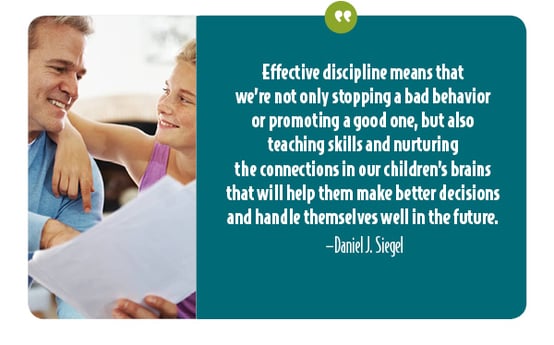Have you ever tried looking for your reflection in a lake with white-capped waves? Nope. We don’t do that, do we, because we know we wouldn’t be able to see our reflection.
Teenage rebellion and angst can create a lot of waves in our relationship with our teen. So much so that parents can react fiercely in knee-jerk ways that backfire and fixate rebellion. Like it or not, it's a teen's job to push the limits and to individuate.
Estimated reading time: 4 paradigm-shifting minutes accompanied by a lifetime of emotional intelligence learning

Be a Model of Love and Self-Control for Your Teen
It's a parent's job to hold the line and be a calm lake that acts as a mirror for the teen to see themselves. And only a calm lake, not a wavy one, works like a mirror. When a child or teen is upset and angry, and when they say those dreaded words, "I hate you!" they most need our calm but firm love to reflect accurately. Then we create a safe space for them to feel fully and to help diffuse their emotional fury.
"When children are stuck in the red haze of inflexibility and frustration, they respond a lot better if they perceive adults as potential helpers, rather than as enemies."
~Ross W. Greene, Ph.D.
Dealing with teenage defiance isn't what you think. When a teen has lost their cool, it's not punishment they need.
Experiencing calmness and unconditional love during their emotional storm is a lighthouse. When they're out of control, screaming "I hate you!" a stabilizing adult with an emotionally intelligent response is what they need.
And it's much more likely that they will internalize and develop self-control when met with calm over fury.
 One of my favorite examples of a calm mirror was a post from Sarah Eyre: a mom’s response to her teenage daughter’s anger. Not only did Sarah hold a safe space for her daughter’s anger, but she also went a leap further and celebrated it with a cake!
One of my favorite examples of a calm mirror was a post from Sarah Eyre: a mom’s response to her teenage daughter’s anger. Not only did Sarah hold a safe space for her daughter’s anger, but she also went a leap further and celebrated it with a cake!
The cake showed her daughter that their relationship was more important to her than a few heated words, and it made their bond even deeper and more secure. She and her husband chose to find a creative way to teach her daughter about emotions and their relationship.
Perhaps some parents who read Sarah’s blog thought her daughter should have been punished for her behavior.
This topic is a favorite of mine so to address this mindset, I wrote an article on teenage rebellion, "Keys to Turn Teenage Defiance into Healthy Self-Esteem," which may be helpful to show the wisdom behind Sarah’s response.
And sometimes doing the unexpected is the best remedy of all for teen disrespect and angst. One time I bombarded my teenage son with green grapes.
Recommended reading: "Parenting Your Teen with Emotional Intelligence."
Punishment —So Last Century!
It’s easy as a parent to react to our teen’s anger and want to punish them because we feel so helpless, but punishment just isn’t as productive as we once believed. Many times, parents react so much that they end up acting as outrageous as their children. What kind of role model of love is that?

Why You Should Avoid Punishment and Teach Your Teen Instead
One of the essential reasons to avoid punishment or harsh reactions is that they only communicate and demonstrate what behavior is inappropriate or undesired! However, this type of parenting doesn't teach a child or teen how to respond differently nor do these reactions inspire the teen to evaluate their future behavior.
Without these ingredients, negative behavior is likely to repeat itself.
Emotions are intensified for your teen during the teenage years so they need to learn how to regulate their emotions. They can't learn this skill if their parents react angrily.
Your teen's emotional immaturity needs a grounding wire to calm themselves—that grounding wire is your relationship as a loving parent to them.
No matter how justified you might feel in your reaction or in the punishment given (I get it!... I've raised three teenagers), these actions do not translate to empowering your teen to be successful in the future.
Isn't it our goal as parents to help children be successful in life and grow up to be responsible, respectful, loving humans?
What those parental reactions most often do instead is create resentment, hurt, and distance in the relationship with your teen.
Is that what you want?
Punishment may make you feel like you stomped out that disrespect, but research says otherwise and they are denied an opportunity to self-regulate themselves. According to one study, "Attainment of enhanced self-regulation skills enables individuals to gain a greater sense of personal control and mastery over their life."*
The message we want to give as parents at any age of our child is "I love you at all times unconditionally." We are their safety net during challenging years of development.
There is a way to parent positively while also holding your child accountable to act respectfully.
Recommended reading: "37 Inspiring Ways to Raise an Emotionally Intelligent Child."

And the most prodigious outcome of all is the cultivation of a healthy and loving relationship with our children.
Did you know that when teens push back the hardest they're often in need of feeling connected and loved?
It's true.
Yep, it sure doesn't feel that way, does it!?
So before responding to any child's or teen's behavior, ask yourself:
- What is most important for me to communicate and teach?
- Will my response teach what I intend?
- What value am I upholding, and is my behavior modeling this value?
If not, try another way.
Be creative.
Stretch yourself beyond a conditioned reaction and look for ways to discipline without causing havoc within the relationship—one that builds a robust self-esteem in your teen!
*Sanders, M.R., Mazzucchelli, T.G. The Promotion of Self-Regulation Through Parenting Interventions. Clin Child Fam Psychol Rev 16, 1–17 (2013). https://doi.org/10.1007/s10567-013-0129-z
For parenting coaching and support or to learn how to teach your children and teens emotional intelligence, contact us at Heartmanity today!








